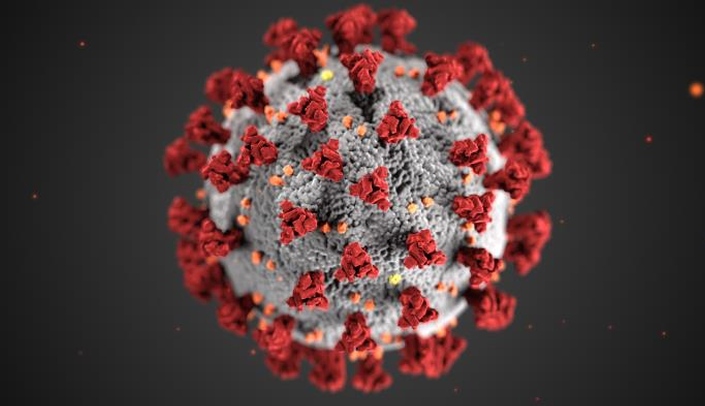On Jan. 7, UNMC Chancellor Jeffrey P. Gold, MD, sent this message to the UNMC community about updated COVID-19 safety efforts at the university.
With the highly transmissible omicron variant the prevalent strain locally and across the nation, UNMC is strengthening its guidance on masking and in-person meetings to further keep our faculty, staff, residents and students safe. As we have said "safety is our North Star."
Throughout this pandemic, we have worked diligently to ensure that UNMC locations are safe. Our on-campus transmission rates have remained low and our vaccination rates are high, with more than 99 percent of all faculty, staff, residents and students in compliance with the UNMC vaccination policy.
We know the past two years have been difficult and the transmissibility of the omicron variant presents additional challenges, yet we will get through this together. Thank you for your attentiveness in keeping our communities safe. Thank you as well for the tremendous amount of mission driven progress that we have made over the past years despite the tragic impacts of the pandemic.
We will continue to require vaccinations and expect boosters, along with proper masking as we navigate the latest COVID-19 wave.
To preserve a safe and effective learning environment and workplace, the following are effective immediately or as otherwise indicated. We have attempted to provide as much flexibility as possible across our educational, research and clinical missions while focusing on the safety of all involved on our campuses and the communities that we serve.
While our policies and procedures will continue to evolve as the omicron spike evolves in our region, the following updates represent our most recent thinking:
- Cloth masks should no longer be used in UNMC facilities beginning Jan. 10. Surgical masks or non-fit-tested masks similar to an N95 mask should be used instead. Gaiters, vented masks and bandanas still are not approved for use. Supervisors, managers or administrators may order surgical masks via the UNMC Mask Request Form. Departments and program directors will provide masks as needed
- Colleagues in clinical areas who are fit tested for a N95 may choose to wear one if desired.
- If you have not been fit tested and want to purchase your own personal, non-vented KN95/N95 mask, you can.
- A cloth mask may be worn over a surgical mask.
- Flexible work policies for employees will continue. Work from home if you can, with approval from your manager.
- While we recognize the high value of in-person learning, safety of our students, staff, and community continues to be our guiding principle. For the time being, we encourage remote learning where it does not significantly impact the educational goals.
- We encourage flexibility in enabling students who are unable or prefer to learn remotely to do so. Faculty are encouraged to be flexible in safely accommodating both the in-person and remote educational needs of all students when possible.
- Clinical and laboratory courses and experiences will continue in person, all using appropriate PPE consistent with the clinical best practices.
- Clinical rotations for health science students will continue, with students complying with COVID regulations of that clinical environment.
- Lecturers should wear masks unless it significantly interferes with their ability to be heard or understood. If no mask is worn to optimize the learning environment, lecturers must use a face shield and have at least six feet distance from others.
- Questions from faculty, staff, or students regarding the status of a particular course should contact the college administrative official responsible for that course.
- Research programs will continue using best infection prevention practices. Again, flexible work policies should be followed when possible.
- Limit campus events/activities to essential activities and limit outside visitors.
- Avoid non-essential in-person meetings when possible. Use Zoom or Teams.
We will continue to follow the science, monitor regional trends and adjust our operations and guidance as needed. Questions? Email healthsecurity@unmc.edu; a multidisciplinary team is available with the latest information. We will continue to provide updates at frequent intervals.
